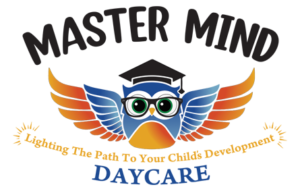The acute learning crisis that followed the pandemic outbreak can’t be ignored. The COVID-19 pandemic has affected over 1.6 billion learners in over 190 countries. While many parents took charge of their children’s education, much needs to be done in this area.
The parent-teacher partnership is crucial for early childhood education, but it’s become super necessary following the learning crisis after the pandemic. Here’s why parental involvement is essential in child development:
Parent-Teacher Partnership
To ensure integrated and holistic learning for children, daycare and schools must partner with parents. Integrated support develops mutual responsibility for the education and academic success of children.
Working alone is not an option in today’s highly dynamic world. Teachers must involve parents at each step of education. This includes getting parents’ insight into developing the curriculum and asking them to discuss their child’s needs and learning stage.
This collaborative work fosters hand-in-hand learning for children. The goal of any education program should be to promote the learning and development of children. Parent-teacher coordination can achieve this goal effectively instead of working in isolation.
Ways To Improve Parental Involvement
To ensure that children get the best learning experience, here’s what educators can do to increase their involvement:
1. Acknowledge Parents’ Involvement
When parents take out time to participate in school events or engage with teachers in day-to-day activities, it needs to be acknowledged. Their contribution can guide administration and educators to offer the right learning opportunities—express gratitude for their participation.
2. Listen Actively
When parents come to talk, listen attentively. Ask questions about their child, their study habits, interests, and what they like to do. Listen to them and take notes of all the information they’re providing. Parents can offer insight that’s otherwise missed.
3. Be Positive and Warm
Be inviting because a little friendliness doesn’t hurt anyone. It goes a long way in building a positive relationship with parents. Whether communicating in person or via other mediums, be warm and start with a positive note.
4. Communicate Regularly
Communication is key to every successful relationship, including professional ones. Often a common mistake teachers commit is not communicating enough with parents. Reach out to parents and discuss what happens during the day. Value parents’ contribution and encourage them to share their children’s strengths.
Keep the parents updated about curriculum play-based activities and inform them about how each aspect of curriculum contributes to learning. While virtual communication is useful, having in-person meetings is better to encourage meaningful exchange.
5. Don’t Assume
No educator or daycare worker should jump to conclusions about home life. Be mindful that families come in all backgrounds and sizes. Don’t assume that every family’s first language is English. Make sure you ask questions and make them feel welcomed.
Are you ready to bring out the best in your child? Enroll your little one at Master Mind Daycare, where we offer an integrated curriculum that caters to the individual needs of each child. Our child care center is based in Havre De Grace, where we focus on building rapport with parents and providing a nurturing environment for children. Our summer camp and daycare program stimulates early childhood development with positive outcomes. Contact us today for more information.



